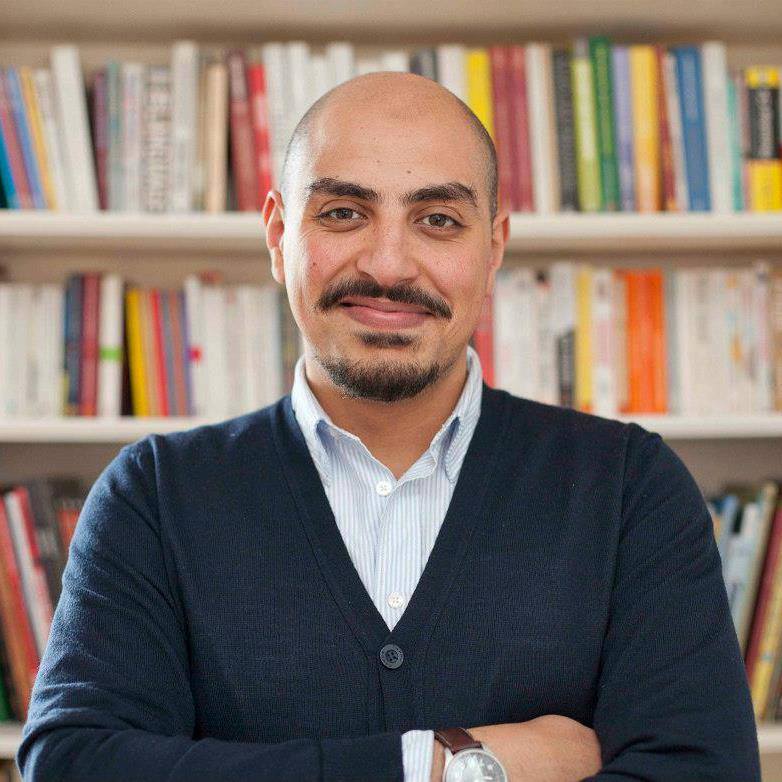Former Collective Against Islamophobia in France (CCIF) director Marwan Muhammad recently published a lengthy statement on his website explaining his position on the Tariq Ramadan affair. He frames the piece around a single issue: “Do not be unfair to the alleged victims, assuming that they’re telling the truth. Do not be unfair to Tariq Ramadan, assuming that he is innocent.”
Muhammad hopes “to make a rational, considerate and balanced diagnosis of this case, by widening the scope of analysis first to include the issue of sexual violence, and second to address the treatment of Muslims.”
He acknowledges the shame that many sexual assault victims are forced to live with, writing: “The overwhelming underreporting of sexual violence can only change if the [victim’s] word is treated a priori with kindness and attentiveness, especially by the police. While we’re on the subject, and in a much more general manner regarding the victims’ condition, this type of situation forces us to think…sexual violence transcends geographic, social, political, economic, cultural, religious, and temporal barriers. It represents an ongoing injustice that we must collectively address. Unfortunately, there is no exception for Muslims. There is no “Muslim problem” that would justify an ethno-cultural or even religious treatment of sexual violence, any more than there is ‘Muslim immunity’ that would protect religious communities from a problem that affects all spheres of society.”
He continues: “Without risking a clinical diagnosis, for which I do not have the credentials, and without wanting to offend, I sometimes have the impression that Ms. Ayari is trying to ‘find herself,’ [a goal] that has unfortunately thrown her into constant instability, which leaves her vulnerable and exposes her to people who want to take advantage of her, she moves between the strictest forms of Islam and the most hostile… from anonymity to constant media exposure.”
Muhammad states that these character judgments should not cause observers to question her accusations. “On the other hand, in the evidence that Ms. Ayari’s counsel and Mr. Ramadan’s lawyers have produced, there are a number of points that deserve attention: Ms. Ayari seems unable to date the day of the rape. She did not attend the witness confrontation organized by investigators, even though Mr. Ramadan willingly presented himself. Moreover, she regularly wrote to Mr. Ramadan, after the alleged facts, without at any time mentioning the hostilities, which did not stop Ms. Ayari from making explicit advances to Mr. Ramadan, long after the alleged act.”
He writes that while “Christelle’s” account was simple and clear, the defense disputes the time the alleged act occurred, arguing that it has tickets proving Mr. Ramadan was in London at the time. The problem: this evidence “disappeared” during the investigation. Muhammad admits that he doesn’t know what to believe, and that it should be left to the justice system to decide Ramadan’s fate.
He then evaluates what he knows about Ramadan: “I never heard Tariq Ramadan speak about Islam or Muslims’ desire to conquer France or Europe…I never heard Tariq Ramadan make the slightest anti-Semitic remark…I never heard Tariq Ramadan make sexist comments…”
He applauds Ramadan for his ability to show that Islam can be European. “He showed that Islam can express itself in French, in Arabic, in German and in English. He showed millions of people that they can live both their citizenship and spirituality, not as conflicting dimensions of their identity, but as two parts of a whole: the independent existence of an enlightened and humanist consciousness.”
He writes: “And in the case of Tariq Ramadan, if we come to find (in months or years) that he is not guilty of what he has been accused of, to be innocent would really be of no use to him, since the judges have decided to detain him until further notice, even though concrete evidence can at least cast doubt on the versions [of the accusations] produced thus far. Today, we found out that Tariq Ramadan has been suffering from a serious illness for two years and that his health is deteriorating since he has been incarcerated, for lack of proper care. He cannot see his family and those close to him have been denied visitation permits, despite the extension of his detention.”
Muhammad concludes that it is necessary to release Ramadan pending trial, for two reasons. First, “This would allow him to have access to the necessary care, while being with his family.” Second, “It would allow him to prepare his defense in good condition.”
He concludes: “Finally, we must try to judge the actions of a man and nothing else. Apart from wanting to turn Tariq Ramadan into a symbol, that of a prisoner turned political figure who is criticized for ideas rather than acts. It is not a question of judging his religion, nor his political opinions… For want of anything better, we will not only be unfair towards Tariq Ramadan, but towards ourselves.”
Sources
You can find the full version here.






